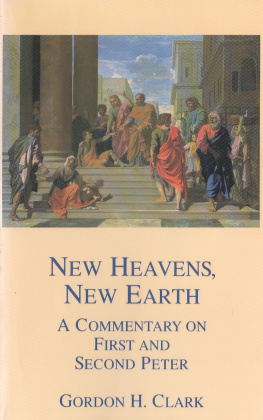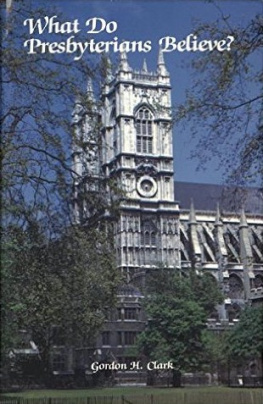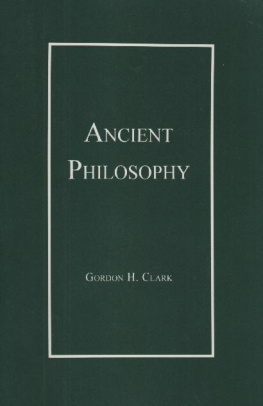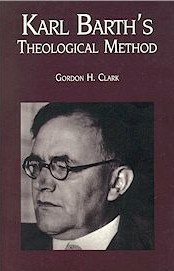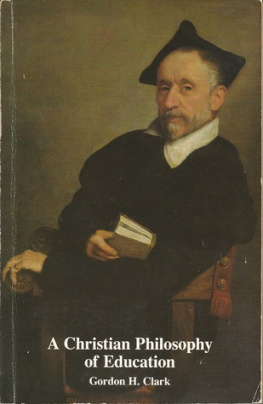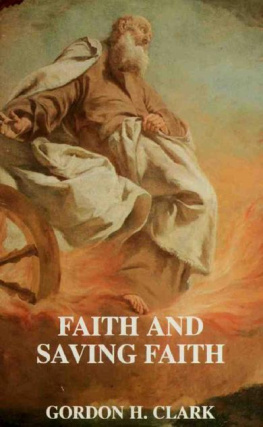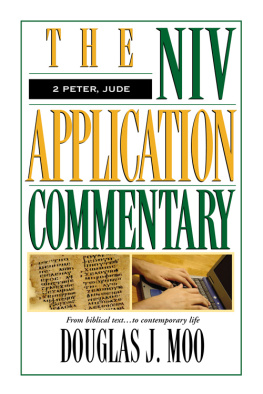Gordon Haddon Clark - New Heavens, New Earth: A Commentary on First and Second Peter
Here you can read online Gordon Haddon Clark - New Heavens, New Earth: A Commentary on First and Second Peter full text of the book (entire story) in english for free. Download pdf and epub, get meaning, cover and reviews about this ebook. year: 1993, publisher: Trinity Foundation, genre: Religion. Description of the work, (preface) as well as reviews are available. Best literature library LitArk.com created for fans of good reading and offers a wide selection of genres:
Romance novel
Science fiction
Adventure
Detective
Science
History
Home and family
Prose
Art
Politics
Computer
Non-fiction
Religion
Business
Children
Humor
Choose a favorite category and find really read worthwhile books. Enjoy immersion in the world of imagination, feel the emotions of the characters or learn something new for yourself, make an fascinating discovery.
- Book:New Heavens, New Earth: A Commentary on First and Second Peter
- Author:
- Publisher:Trinity Foundation
- Genre:
- Year:1993
- Rating:5 / 5
- Favourites:Add to favourites
- Your mark:
- 100
- 1
- 2
- 3
- 4
- 5
New Heavens, New Earth: A Commentary on First and Second Peter: summary, description and annotation
We offer to read an annotation, description, summary or preface (depends on what the author of the book "New Heavens, New Earth: A Commentary on First and Second Peter" wrote himself). If you haven't found the necessary information about the book — write in the comments, we will try to find it.
Gordon Haddon Clark: author's other books
Who wrote New Heavens, New Earth: A Commentary on First and Second Peter? Find out the surname, the name of the author of the book and a list of all author's works by series.
New Heavens, New Earth: A Commentary on First and Second Peter — read online for free the complete book (whole text) full work
Below is the text of the book, divided by pages. System saving the place of the last page read, allows you to conveniently read the book "New Heavens, New Earth: A Commentary on First and Second Peter" online for free, without having to search again every time where you left off. Put a bookmark, and you can go to the page where you finished reading at any time.
Font size:
Interval:
Bookmark:
First and Second Peter
Gordon H. Clark
The Trinity Foundation Jefferson, Maryland
Cover: Saints Peter and John Healing the Lame Man. Nicolas Poussin (1594 1665). Oil on canvas. The Metropolitan Museum of Art, Marquand Fund, 1924.
Copyright 1967, 1972 Lois A. Zeller and Elizabeth Clark George
Second edition copyright 1993 John W. Robbins
The Trinity Foundation Post Office Box 700 Jefferson Maryland 21755 ISBN: 023694931
Reverence
Morality
Redemption
A Single Sacrifice
Noahs Gospel
The Flood and Baptism
Although the Roman Catholic church calls Peter the first pope, he nowhere gave himself that title, nor did anyone else in the early church. There is no evidence that an institution such as the papacy even existed until long after Peters death. It is entirely foreign to the apos-tolic church, which knew only one head, and only one mediator be-tween God and man, the man Jesus Christ. Peter refers to himself as an apostle, one of several appointed by Christ; it was the highest office in the New Testament church. The church on earth is not a monarchy; it is a republic, and Peter, in writing these letters, wrote part of its constitution.
Peter wrote to Christians scattered across the face of the earth to encourage them in a time of persecution. It is instructive to note how he encouraged them. Peter did not encourage the persecuted Christians by speaking of the political ascendancy of the church or of Christians; he did not encourage them by speaking of a triumphant institution or movement. He failed to mention Constantine; he ignored the millen-nium. To encourage the poor Christians Peter spoke only of their ir-revocable election to salvation, of the inheritance incorruptible and undefiled, that does not fade away, reserved in heaven for you who are kept by the power of God through faith for salvation ready to be revealed in the last time.
Scoffersthose openly anti-Christian and those professing to be Christiansridicule this hope as pie in the sky. It is typical of the worldly mentality of the scoffers that they can think only in physical terms, only in terms of pie. Apparently their god is their stomach. Had they but an inkling of what salvation means, they might see the foolishness of their efforts to build heaven on earth. Peter promised something far better: new heavens and a new earth. The Gospel promises eternal salvation, a salvation achieved by the power of the God: eternal life that can never be lost, eternal joy that can never end. It is an incorruptible inheritance from God. It is this hopea certain hope, for Christ has already risen and ascended into heavenwith which Peter encour-ages the persecuted exiles.
The twentieth century is the bloodiest century in the Christian era, and most of that blood has been shed by institutionschurches and governmentsthat have sought to immanentize the eschaton. Ridi-culing eternal salvation as pie in the sky, they have not hesitated to make blood flow on Earth. But they have not and cannot deliver either pie in the sky or pie on Earth. They can deliver only death, both now and in the world to come.
The twenty-first century may be another time of harsh persecu-tion of Christians. If so, they can be encouraged by reading Peters letters and by being reminded that life eternal is theirs, that it can never be lost, and that no man, institution, or creature can take it away.
John W. Robbins February 1993
The first epistle of Peter is a message for the twentieth century, even though the fisherman and apostle died many centuries ago. The reason for the timeliness of the epistle lies in the fact that Peter wrote by the inspiration of the Holy Spirit; and when God revealed himself to Moses, to Daniel, or to Peter, his message was not limited in its application to the local conditions that Moses, Daniel, or Peter had to face; rather, when God spoke, he gave a message that he intended to guide Christians of all ages.
The following exposition of First Peter takes the form of a com-mentary; but it is a devotional and practical rather than a technical and critical commentary. A good critical commentary would list and dis-cuss nearly all the different interpretations of each phrase. Such a study is very valuable, but the negative results of critical procedure are largely omitted from this book, and the space is occupied with a posi-tive explanation of the text as the author understands it. I have also ordinarily omitted the technical appeal to the Greek wording. Although a study of the original underlies the whole, infrequent reference is made to it, and no reader need turn back because he did not take Greek in high school. As a substitute, phrases are retranslated or paraphrased in the body of the exposition where clarification of the King James version seemed desirable.
But more especially this study differs from the usual pattern of commentaries by leisurely detours into the wider scriptural background and by the inclusion of considerable illustrative material. It is hoped that the wider Scriptural background will serve, not only to show the unity of the Biblical message, but also to stimulate private meditation and habits of Bible study. With this it is also hoped that the illustrative material will not only make the reading enjoyable, but that it will provide teachers of Bible classes with sufficient material in available form.
The King James version is quoted at the beginning of each sec-tion. Some consider this version outmoded both by its errors and by its antiquated English. Translations in modem speech are attempting to displace it. But there are reasons for still using the familiar version. The familiarity itself is a reason, as well as the beauty of the language. This may not seem like a very scholarly reason; but will anyone assert that the less rhythmic language of the modem translations is a positive asset and that beauty is a defect? And unless the atomic age is to explode mans aesthetic endowment, I venture to predict that no mod-em version will displace the King James and gather to itself the affec-tion of the Christian people without achieving pleasing English. And if the proponents of modem speech disdain considerations of beauty, may we not ask why it is unreasonable to demand pleasing English of scholarly translators?
Let us admit that the King James version suffers both because the best manuscripts had not been discovered, and because various gram-matical mistakes were made. The American Revised Version is in most places more accurate, and a student should not be without it. Nonetheless, in what seems to have been an effort to be different for the sake of being different, it has mined the rhythm of the familiar words.
Then too it is not always true that the modem versions are more accurate. While the new Revised Standard Version has a very excellent translation of First Peter, the New Testament is not uniformly good. For example, the first chapter of Ephesians is notably bad. And there is the mistranslation of the word for propitiation. To propitiate means to appease the wrath of an angry Deity, and this is exactly what the New Testament means where the word occurs. To expiate, and this is the word the contemporary translators have substituted, means to extin guish guilt, or to atone for, by suffering, by paying a penalty, or in some way or other. It could seem that the translators find the idea of propitiation distasteful, and accordingly replaced it with a less definite and therefore less obnoxious idea. But true scholarship requires the translation to reproduce the ideas of the original author and not to reflect the preferences of the translator.
But there is also another reason for using the King James version. Perhaps it is just personal prejudice, though I should prefer to call it taste and delicacy. The modem versions are copyrighted. Now, it costs a good deal of money to translate and publish the Bible. The translators should be well paid and the publishers deserve their profit. But legiti-mate though this financial consideration is, one wonders whether it is good taste to copyright and claim ownership of Gods Word?
Font size:
Interval:
Bookmark:
Similar books «New Heavens, New Earth: A Commentary on First and Second Peter»
Look at similar books to New Heavens, New Earth: A Commentary on First and Second Peter. We have selected literature similar in name and meaning in the hope of providing readers with more options to find new, interesting, not yet read works.
Discussion, reviews of the book New Heavens, New Earth: A Commentary on First and Second Peter and just readers' own opinions. Leave your comments, write what you think about the work, its meaning or the main characters. Specify what exactly you liked and what you didn't like, and why you think so.

